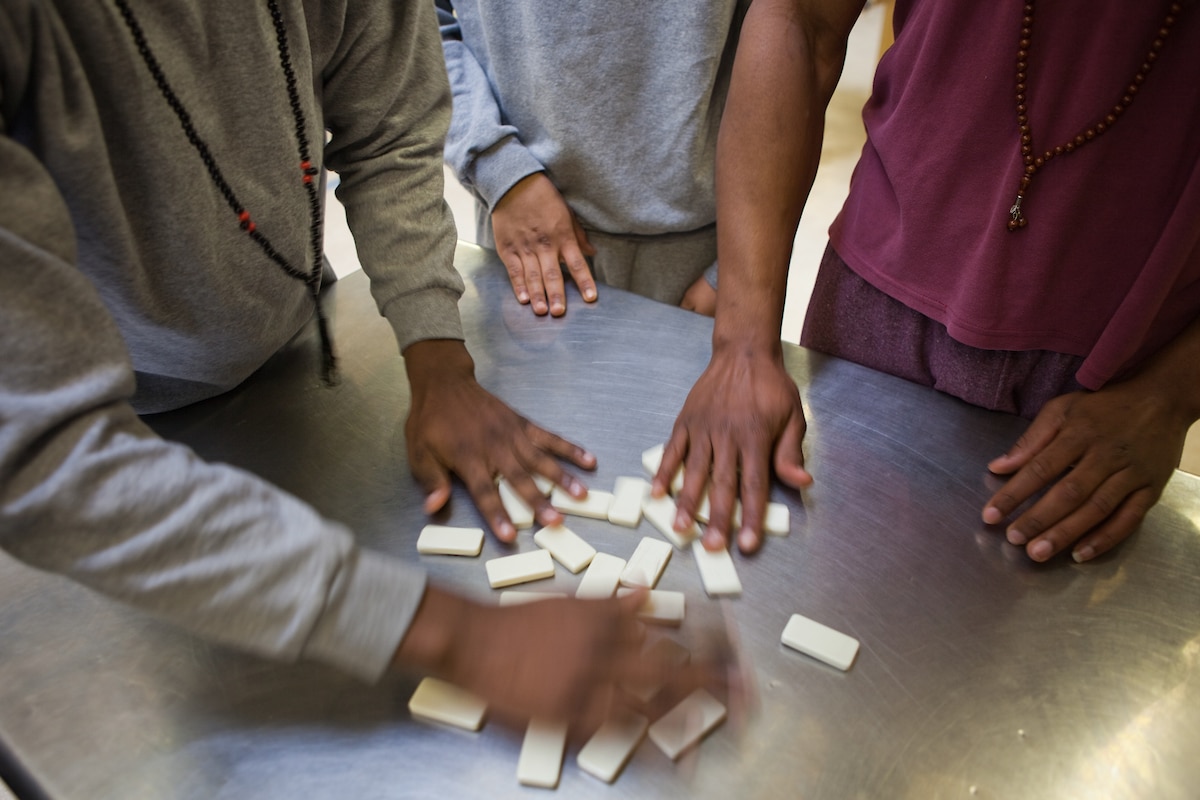
The experience of gambling in prison
The researchers found that gambling is culturally embedded within prisons, described as a ‘normal’ pastime by residents and staff. While gambling is prohibited in prison, staff reported that they did not see gambling as problematic and mostly viewed it as ‘harmless betting’ and low-level.
Residents highlighted that gambling is mostly hidden from staff and managed by residents, however there is a willingness amongst staff to turn a blind eye, to keep the “wings calm and quiet”, as “everyone is well behaved, not causing any problems”. A lack of knowledge around gambling harms meant that staff felt a sense of powerlessness in their ability to effectively control gambling. This lack of guidance and inconsistent response to gambling contributed to a confusing and enabling culture.
The role of gambling in prison
The researchers broke the role of gambling in prison down into four themes:
- the need to feel;
- engineering freedom;
- survival; and
- meaningful relationships.
The need to feel
‘The need to feel’ was articulated in two ways; to alleviate boredom and to generate stimulation. It brought a sense of joy and excitement and provided relief from the “dullness” of prison, where there were limited options for education or employment. For some, gambling was an aid to “numb everything”, to self-soothe and manage the pains of incarceration. In addition to this, gambling added meaning to life for many. Residents and staff stated that gambling added meaning to recreational activities (e.g. playing pool) and gave some residents a purpose, for example, having their own in-cell shop.
Engineering freedom
Residents also used gambling to engineer freedom, describing gambling as an “escape” from prison and a way to generate a sense of normality and to “pass the time”.
Survival
Survival was a consistent theme within the views expressed by participants in the research. Gambling was also described as a route to gain goods of value, which operated as currency across the underground economy (where food, property, drugs, and phones could be bought illegally).
Staff and residents acknowledged that if people did not have family support and money was not sent into prison, residents would struggle due to the small food portions, poor food quality and low prison wages.
Some residents explained that gambling was an “earner” that meant they did not need to “burden” their families.
Meaningful relationships
Gambling was also used to validate friendships and status and enabled people in prison to build new relationships or reconnect with those relationships from outside of prison. For new connections, gambling allowed trust and friendships to be built, reducing loneliness.